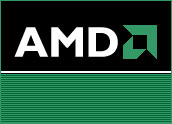
AMD Sets Chip-Making Course With CharteredJay LymanGearing up to supply a growing demand, AMD hassecured a microprocessor sourcing and manufacturing deal with Chartered Semiconductor,which will add capacity for production of AMD’s Altlon64 and Opteron chips.
AMD said it will have its Dresden, Germany facility cranking out itslatest processors, but will also rely on Chartered to meet “expandingend-customer demands” for Athlon64 and Opteron. Chartered will be ready tobegin producing chips at a fabrication facility in Singapore beginning in2006, the companies said.
Market Milestone
“This is another milestone in driving the market to pervasive 64-bitcomputing,” said a statement from AMD executive vice president Dirk Meyer.”We believe that all of our customers around the globe will benefit fromthis relationship.”
Meyer also referred to price/performance pluses with Athlon64 andOpteron, which industry analysts credit as the true reason for the chips’ recent success.
“It’s still true it’s the price/performance positioning of their productsrather than 64-bit that’s explaining their success,” Mercury Researchpresident Dean McCarron told TechNewsWorld. “Sixty-four-bit is a piece, but it isfar from the only reason those processors are working in the market.”
Farming Out Foundry
Almost exactly one year after AMD announced groundbreaking on its US$2.4billion foundry in Dresden, the company indicated that it may need moremanufacturing capacity to meet demand for its chips.
AMD will license portions of its Automated Precision Manufacturing (APM)software suite, which has been a key part of its highly automated andefficient manufacturing.
The chip companies said that Chartered will begin integrating the APMprocess into its own 300 millimeter wafer fabrication plant beginning in the fourthquarter of this year.
Mercury’s McCarron said that unlike Intel, which has a number of facilitiesthat can ramp production up if needed, AMD has only its Dresden plant. Theanalyst said the manufacturing deal with Chartered would give AMD theincreased capacity to meet market demand.
“This is a fairly effective strategy for them to be able to supply asmuch as the market is going to want without having to invest in anotherfoundry,” McCarron said.
Noting the cyclical nature of the chip market, McCarron said AMDappears to be using a “blended approach” to chip production by using its ownfactory and reserving more capacity through Chartered.
Big Blue’s Blessing
McCarron said the Chartered announcement had been signaled when AMD and IBMextended a chip processing deal in September. While the deal centered onjointly developed technology, it also left AMD the option of using athird-party foundry to make chips that rely on the AMD-IBM work.
McCarron said the IBM and Charter deals were AMD’sresponse to the rising cost of chip research and development.
While AMD has highlighted 64-bit computing, which is much more of a factorfor servers than for desktop computers, analysts have consistently highlighted the impact of cost and efficiency benefits from Athlon64 and Opteron.
Gartner research vice president Martin Reynolds told TechNewsWorld thatAMD is moving aggressively to 64-bit processors, but is currently sellingmore Athlon and Opteron chips because of the current market.
Reynolds said the 64-bit strategy was more central to AMD’s battle withIntel, which has more resources for research and development as well as forramping up production.
“You have to make these types of investments to stay in the game,”Reynolds said. “Intel sets a terrible pace for any competitor, not only intechnology, but in production and manufacturing.”





















































